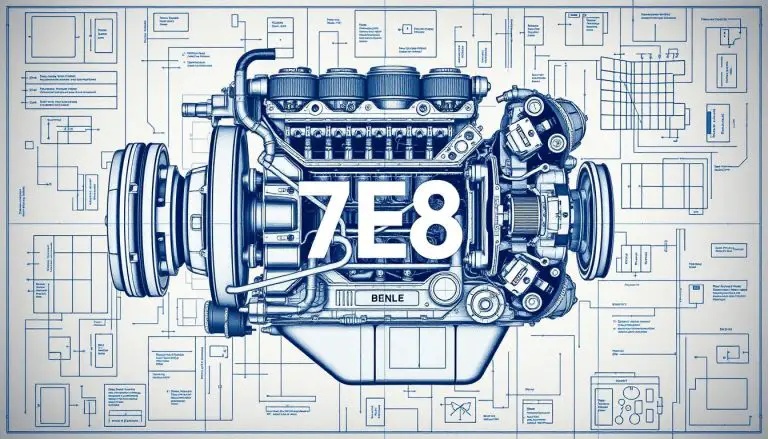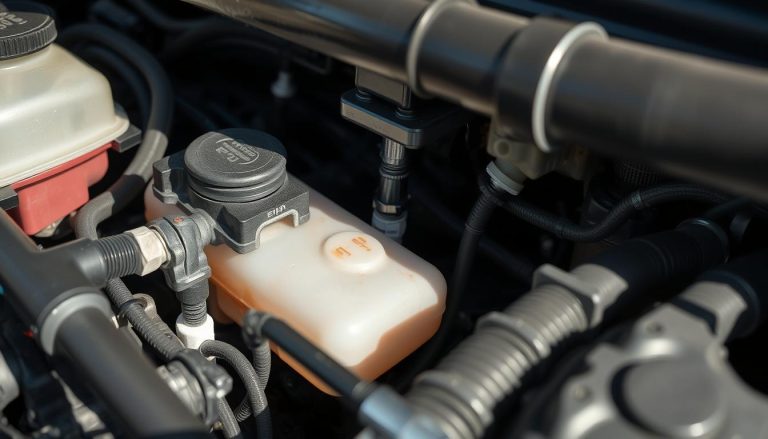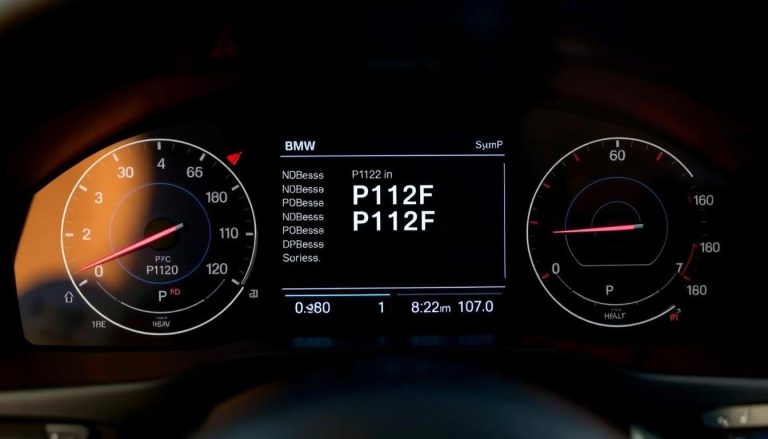If you’ve ever seen the dreaded check engine light blink on your dashboard, one common offender that could trigger this warning is the P0272 code, specifically indicating a cylinder 4 contribution or balance fault. But what does that really mean for your vehicle?
Understanding this code can save you time, money, and even some headaches down the road. In this guide, we’ll dive deep into everything related to the P0272 code—from its causes and symptoms to diagnosis and repair solutions.
What does the P0272 code mean?
The P0272 code is a diagnostic trouble code that signals an issue with cylinder 4 in your engine. More specifically, it indicates a problem related to the contribution or balance of this particular cylinder compared to the others.
When the engine control module (ECM) detects that cylinder 4 isn’t performing as expected, it triggers this code. This can mean it’s producing less power than other cylinders or there’s an imbalance affecting overall engine performance.
Understanding this fault is crucial because it directly impacts vehicle efficiency and drivability. Ignoring the P0272 code could lead to more significant issues down the line if not addressed promptly. Recognizing its meaning sets you on the right path toward proper diagnosis and repair.
What parts can be affected by P0272 code ?
The P0272 code often points to issues within the engine’s fuel and ignition systems. This can involve critical components like the fuel injectors, particularly for cylinder 4. If an injector is faulty or clogged, it may not deliver the right amount of fuel, leading to imbalances.
Spark plugs also play a role in this scenario. Worn or damaged spark plugs can cause misfires that trigger the P0272 code. A malfunctioning ignition coil associated with cylinder 4 could lead to similar symptoms.
Additionally, the Engine Control Module (ECM) could be implicated as well. It’s responsible for monitoring each cylinder’s performance and adjusting parameters accordingly.
Moreover, vacuum leaks might affect air-fuel ratios across cylinders, contributing to balance faults flagged by this code. Addressing any of these parts promptly helps maintain optimal engine performance.
What are the possible causes of a P0272 code?
Several factors can trigger a P0272 code, primarily linked to issues within the engine’s fuel delivery system. A malfunctioning fuel injector in cylinder four could lead to an imbalance in performance. If the injector isn’t delivering the right amount of fuel, it creates discrepancies that prompt this error code.
Another possible cause is low compression within that specific cylinder. This might result from worn piston rings or a damaged head gasket, both affecting how well the engine operates.
Additionally, faults in wiring or connectors related to the fuel injection system can contribute to this issue. Corrosion or damage may disrupt communication between components and prevent proper function.
Problems with the engine control unit (ECU) itself cannot be overlooked. A faulty ECU may misinterpret signals and incorrectly flag cylinder four as problematic when everything else appears normal.
What are the common symptoms of a P0272 code?
When a vehicle triggers the P0272 code, several symptoms may arise. One of the most noticeable signs is engine misfire. This can lead to rough idling and uneven acceleration.
Drivers might also experience decreased fuel efficiency. The car’s system struggles to balance power among cylinders, causing extra strain on fuel consumption.
Another common symptom is increased exhaust emissions. If the cylinder isn’t contributing properly, it can produce unburned fuel that exits through the exhaust.
Additionally, a check engine light will often illuminate on your dashboard. This alerts you that something requires attention under the hood.
Some drivers report vibrations or unusual noises coming from the engine bay as well. These sensations can indicate underlying issues with performance and stability.
Paying close attention to these symptoms can help prevent further damage and maintain optimal vehicle function.
What are the diagnostic steps for a P0272 code?
Diagnosing the P0272 code requires a systematic approach. Begin with a thorough visual inspection of the engine components.
Check for any obvious signs of damage or wear. Look at wiring harnesses and connectors, particularly those related to cylinder 4.
Next, use an OBD-II scanner to confirm the presence of the P0272 code and look for any accompanying trouble codes. This can provide insight into other potential issues affecting performance.
Perform a compression test on cylinder 4. Low compression readings might indicate mechanical failures like worn piston rings or valves.
Consider examining fuel injectors specific to cylinder 4 for clogs or malfunctions. A faulty injector could lead to improper fuel delivery, causing balance issues.
Inspect ignition components such as spark plugs and coils associated with that cylinder. Ensuring they’re functioning correctly is crucial in pinpointing the problem accurately.
How serious Is the P0272 Code? Can I continue driving with the P0272 code?
The P0272 code is a signal that something isn’t right with your engine’s performance, particularly related to cylinder 4. Ignoring this issue isn’t advisable.
Driving with a P0272 code can lead to further complications. The imbalance in cylinder contribution may cause rough idling or stalling. These symptoms are not just inconvenient; they can be dangerous while on the road.
While you might manage short trips, prolonged driving could exacerbate existing problems and potentially damage other engine components. This might result in costly repairs down the line.
Always consider getting it checked by a professional mechanic. They can accurately diagnose the problem and prevent additional issues from arising. Prioritizing your vehicle’s health ensures both safety and efficiency while driving.
What are the repair solutions for a P0272 – Cylinder 4 Contribution/Balance Fault ?
Repairing a P0272 code involves several potential solutions, depending on the root cause.
Start by checking the fuel injector for cylinder 4. A malfunctioning or clogged injector can disrupt fuel delivery, leading to balance faults.
Next, inspect ignition components such as spark plugs and coils. Worn or faulty parts may cause misfires that trigger the P0272 code.
Another area to examine is vacuum leaks in the intake manifold. These can affect air-fuel ratios and should be addressed promptly.
Additionally, testing engine compression will reveal if there are internal mechanical issues like worn piston rings or valves causing performance imbalances.
In some cases, simply updating or reprogramming your vehicle’s engine control module (ECM) might resolve software-related discrepancies contributing to this code. Engaging with a qualified technician ensures appropriate diagnostics and repairs tailored to your specific situation.
What other codes may be related to P0272?
When dealing with the P0272 code, it’s essential to consider other related trouble codes that may arise. These can often provide further insight into underlying issues.
One common code is P0300, which indicates random or multiple cylinder misfires. This could suggest a broader problem affecting engine performance.
Another code to keep an eye on is P0204, linked specifically to injector circuit malfunctions for cylinder 4. If the fuel injector isn’t functioning correctly, it can lead directly to contribution and balance faults like P0272.
Codes such as P0171 or P0174 may also appear, indicating lean conditions in the engine. A lack of proper fuel delivery can exacerbate issues with cylinder balance and contribute to poor performance overall.
By examining these associated codes along with P0272, you gain a more comprehensive picture of your vehicle’s health.
How much does it cost to diagnose and repair a P0272 code?
Diagnosing a P0272 code typically costs between $100 and $200. This includes labor charges for the technician to run diagnostics and identify any underlying issues.
Repair costs can vary widely based on the root cause of the problem. If it’s simply a faulty spark plug or ignition coil, you might spend around $150 to $300.
However, if you’re facing more significant issues, such as injector problems or internal engine damage, repairs could soar to several thousand dollars.
Always consider getting multiple quotes from different mechanics. Comparing prices ensures you receive fair service without hidden fees.
It’s important to remember that neglecting this issue may lead to even higher repair bills down the road. Investing in timely diagnosis and repair can save money in the long run.
How long does it take to diagnose and repair code P0272?
Diagnosing the P0272 code typically takes a few hours, depending on the vehicle’s make and model. Mechanics will begin by connecting a scan tool to read the trouble codes and gather data from various sensors.
Once they confirm the P0272 code, they’ll conduct further tests. This may involve checking fuel injectors, spark plugs, or compression levels in cylinder four. Each of these elements requires careful examination which can add time to the process.
Repairing issues related to this code can vary significantly in duration as well. If it’s a simple fix like replacing an injector or cleaning carbon deposits, it might take just a couple of hours. However, if deeper engine problems are uncovered during diagnosis, repairs could extend over several days.
Being prepared for variability is important when dealing with diagnostics and repairs for P0272-related issues.
Is the P0272 code specific to certain car makes or models?
The P0272 code is not limited to one specific make or model. It can appear in various vehicles, particularly those equipped with multi-cylinder engines.
Typically, you’ll find this issue more prevalent in older models where engine wear and tear may exacerbate problems with cylinder contribution. However, newer cars are not immune either.
Manufacturers such as Ford, Chevrolet, Honda, and Toyota have all been known to trigger the P0272 code under certain conditions. Variations in how each brand constructs its engine system can influence the factors that lead to this fault.
If you’re experiencing a P0272 code in your vehicle’s diagnostic readings, it’s best to consult service manuals specific to your car. Different brands might require unique troubleshooting approaches for effective resolution of the problem.
How can I avoid a P0272 code?
Preventing the P0272 code requires a proactive approach to vehicle maintenance. Regularly scheduled service checks can make a significant difference.
Keep an eye on your fuel system. Use high-quality fuel and consider using fuel additives that can help clean injectors and improve combustion efficiency.
Monitor engine performance closely. If you notice any unusual sounds or vibrations, address these issues promptly before they escalate into bigger problems.
Routine inspections of ignition components are essential as well. Worn spark plugs or faulty ignition coils can lead to misfires, contributing to balance faults in the cylinder.
Ensure your engine is always operating at optimal temperatures by keeping the cooling system in good condition. This simple practice can prevent many related codes from appearing down the road.
What happens if you ignore a P0272 code?
Ignoring a P0272 code can lead to serious consequences for your vehicle’s performance and longevity. When this fault is present, it indicates that there’s an imbalance in the engine’s cylinder contribution, meaning one or more cylinders are not performing optimally. If left untreated, you may experience decreased fuel efficiency and increased emissions.
As the issue persists, more significant problems could arise. This might include damage to the engine components or even complete engine failure in severe cases. Additionally, driving with a malfunctioning cylinder can cause strain on other parts of your vehicle’s system.
Beyond mechanical failures, ignoring such codes often results in costly repairs later down the line. It’s always smarter to address diagnostics as soon as they appear rather than waiting until a minor problem escalates into something major.
Long-term neglect of the P0272 code could also affect resale value when it’s time to sell or trade your vehicle. Prospective buyers often conduct thorough inspections and run diagnostic tests; any unresolved issues will likely raise red flags.
Staying proactive about car maintenance ensures smooth rides ahead while keeping repair costs manageable. So if you see that check engine light illuminated due to a P0272 code, make it a priority to investigate further for both safety and peace of mind.


